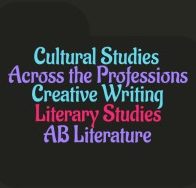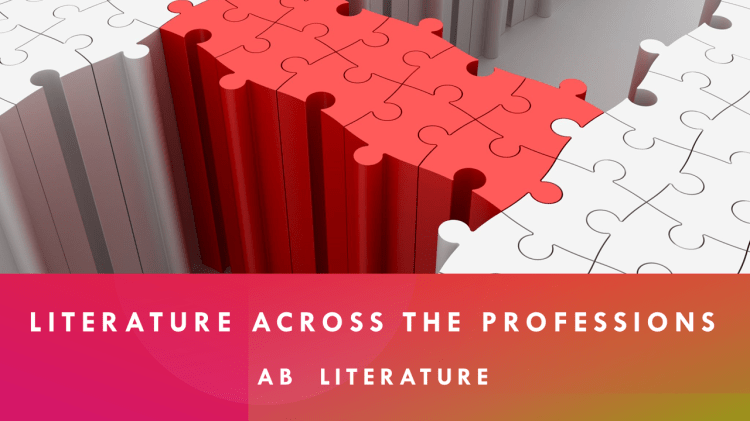AB Literature / AB Literary and Cultural Studies
Nature of the Field
The ideal of an educated person is trained in well-rounded and holistic but focused and specialist academic programs. A background in literature provides precisely this kind of training that envisions a citizenry that at once possesses skills, values, and imagination.
The study of literature involves training in a range of skills including advanced communicative competence, effective strategies in rhetoric and research, and modes of literacy that provide access to macro/micro-skills (reading, writing, speaking, listening, interpretation and critical thinking) and integrated/integrative competencies (problem-solving, independent study, research, creativity/innovation, team-work, appreciation of different perspectives, intellectual flexibility, intercultural/linguistic adaptability).
It involves both specific and generic skills in literature, training in competencies targeting critical and creative thinking and oral and verbal communication, formation and development of values and attitudes required of a Filipino in the age of trans-regionalization and internationalization.
The study of Literature builds upon the assumption that all texts, literary or non-literary, are “literature,” whose power and effectiveness as mode of communication and literary art are enabled by the skills and the craft, knowledge, values and perspectives associated with what is traditionally called “literary.” Therefore, texts have to be studied, whether literature-generic or literature specific, on the assumption that texts are read, circulated, produced and reproduced as “literature.” Here lies the competitive edge of graduates with a background and training in literature: words do not just communicate plain meaning; rather, they open up a world of meanings that have practical effects in everyday lives in the world of home and the world of work.
Additionally, it provides the tools for interdisciplinary professions through exposure in the orientation and methodologies of both the humanities and the social sciences across national and international languages, careers and vocations. Finally, it develops in the students the use of their imagination through various types of creative writing, presentations and productions from poetry to copywriting. Careers that open up widely to the students trained in the study of literature include the legal, business, media, diplomacy, health and medical and service-oriented professions, requiring the abovementioned skills and knowledge which are highly employable nationally and internationally.
Program Goals
While the study of literature offers many ways to improve specific skills and general knowledge, it is equally concerned with the promotion of values of Filipinoness and humanness: the understanding of and sympathy for the feelings and thoughts of the Filipino as a human individual in concrete situations, relationships, experiences, and history.
By studying literary and cultural texts – local and global, classical and contemporary – students are generally enriched by multicultural and interdisciplinary perspectives. It encourages them to produce their own literary and cultural texts that may be required by a range of disciplines and professions and thus contribute to the body of Philippine literature and the development of Philippine culture. It also expands their experiential and intellectual horizons that develop knowledge, values, skills and intercultural competence. These will encourage disciplinary commitment and prepare them for national and international career outcomes and life-long learning.
In summary, the program is designed to develop critical thinking and imaginative expressions and innovations across languages and cultures.
See complete description in POLICIES, STANDARDS AND GUIDELINES FOR THE BACHELOR OF ARTS IN LITERATURE/ BACHELOR OF ARTS IN LITERARY AND CULTURAL STUDIES, CHED CMO NO. 21, SERIES OF 2017.
The curriculum is designed to enhance the student’s knowledge and understanding of literary and cultural texts, critical theories and contemporary cultural and media forms; and their ability to appreciate, interpret, and evaluate the same. It is also designed to develop in the student their skills in imaginative writing and other creative modes of expressions.
The AB in Literature has two tracks: Track A Literature and Cultural Studies and Track B Literature Across the Professions. Each program shall have a minimum of 117 units excluding P.E. and NSTP. The curriculum consists of three parts: (a) General Education Courses, (b) Core Courses, (c) Specialization Courses, and (d) Electives.
Back to Home




